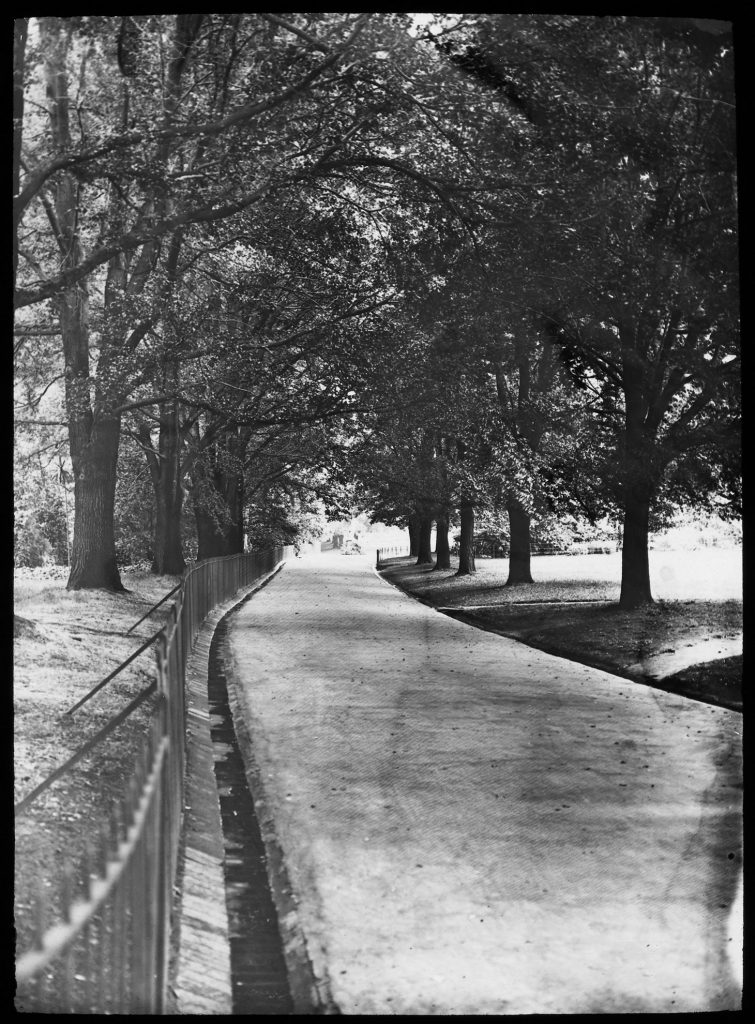Glass lantern slides, early 1900s, Fitzroy Gardens, Burnley School of Horticulture, Carl Bogue-Luffmann
Summary
Slide No. 40 of 44
This slide is from a collection of forty-three glass lantern slides of Melbourne parks and gardens in the early 1900s; images of Fitzroy Gardens predominate.
The slides were made to illustrate lectures at the Burnley School of Horticulture. Glass slides are fragile and few survive from that time, which makes these photographs all the more important. The slides found were in a disused storeroom at Burnley Horticultural College in 1975 and saved from destruction by a sharp-eyed student.
By the early 1900s, popular interest in gardens and gardening was in full flower. Nurseries were doing a roaring trade, many gardening books and magazines were available and Melbourne’s Botanic Gardens were being transformed. Burnley School of Horticulture (as it was then called) was the first institution of its kind in Australia, attracting students keen to make careers in garden design, fruit-growing and practical plant husbandry. Its first principal, Carl Bogue-Luffmann, was an influential teacher, writer and promoter of Australian species. The educational principles he laid down exerted a profound influence on generations of Australian garden makers.
Bogue-Luffmann and his staff would have used these slides to point out the strengths or weaknesses of various garden layouts, the positioning of garden features and buildings, and the characteristics of individual plant species, emphasising the importance of form and structure, naturalistic planting and responsiveness to local conditions.
Today, we can enjoy them for their vivid evocation of an era, knowing that Melbourne’s public parks and gardens are still among the best in the world, just as they were a hundred years ago.
